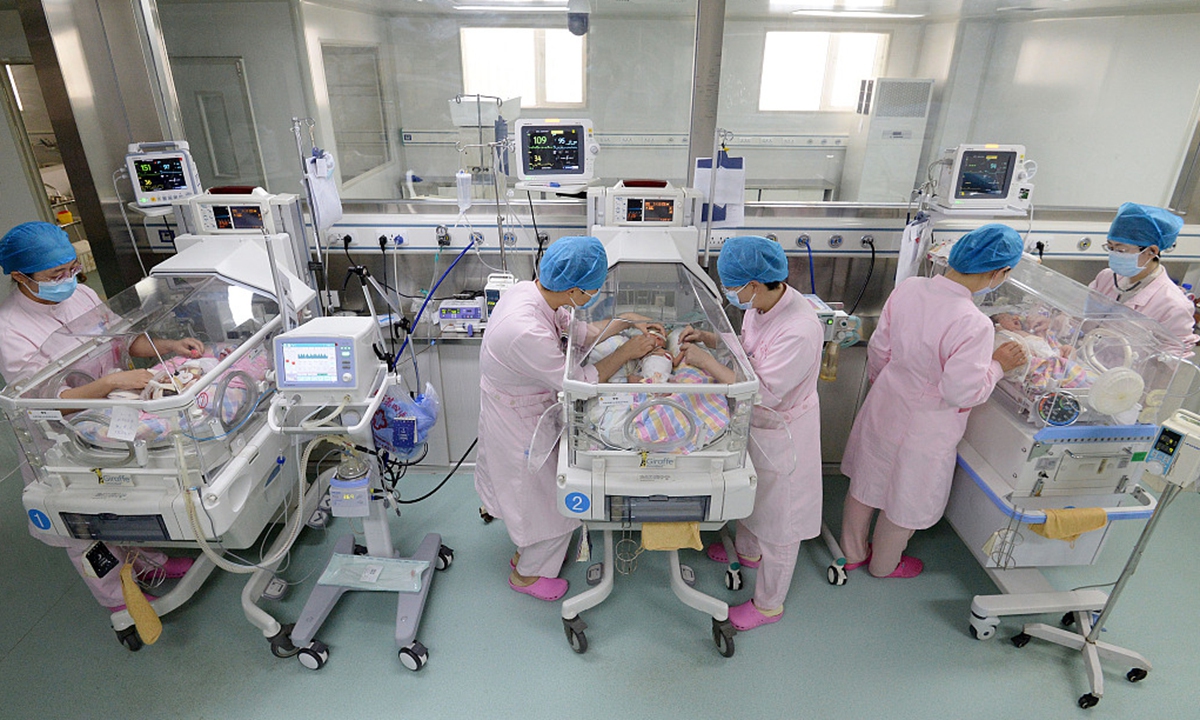
Photo: VCG
Beijing on Thursday announced that 16 assisted reproduction technologies will be covered by the city's healthcare system from July 1, which is expected to relieve the economic burden of couples receiving these treatments.
The technologies include commonly used ovulation induction test, sperm optimal treatment, semen cryopreservation, in-vitro fertilization embryo culture, embryo transplantation and frozen embryos recovery.
The policy was made based on the capacity of the medical insurance pool and the maturity of related technologies, according to city authorities.
Women who have purchased an additional insurance will be eligible for a further discount which equal a saving of up to 5,000 yuan ($697).
A 35-year-old woman surnamed Chen, who has been receiving medical treatment with assisted reproductive technologies for more than a year, told the Global Times on Thursday that the new policy will save a large amount of money for couples like her and her husband.
"The commonly used in-vitro fertilization embryo culture and embryo transplantation usually cost thousands of yuan, but sometimes multiple treatments are needed," Chen said.
The new policy is "a very good news" for many as it can relieve economic burden from couples trying to have children, Chen said, citing patients she had met who planned to give up after three surgeries due to the onerous costs.
Northeast China's Liaoning Province announced in May that 18 assisted reproduction technologies would be covered by the local healthcare system from July 1.
In August 2022, the National Health Commission and National Healthcare Security Administration together with 15 other authorities issued guidance on improving and implementing policies in support of fertility, advising provinces and regions to consider covering related technologies as part of local healthcare systems based on available capacity.
To provide support for people who want to have children and create a fertility-friendly society, multiple Chinese provinces and regions are taking surveys of factors affecting these issues. A recent poll by Southwest China's Sichuan Province listed options including economic subsidies, support for childcare and education, length of fertility leave and guarantees of women's employment rights.
Global Times




